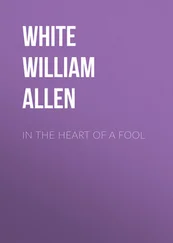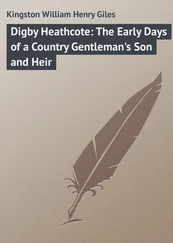WEATHER
For we’re always out of luck here. That’s just how it is — for instance in the winter. The sides of the buildings, the roofs, the limbs of the trees are gray. Streets, sidewalks, faces, feelings — they are gray. Speech is gray, and the grass where it shows. Every flank and front, each top is gray. Everything is gray: hair, eyes, window glass, the hawkers’ bills and touters’ posters, lips, teeth, poles and metal signs — they’re gray, quite gray. Cars are gray. Boots, shoes, suits, hats, gloves are gray. Horses, sheep, and cows, cats killed in the road, squirrels in the same way, sparrows, doves, and pigeons, all are gray, everything is gray, and everyone is out of luck who lives here.
A similar haze turns the summer sky milky, and the air muffles your head and shoulders like a sweater you’ve got caught in. In the summer light, too, the sky darkens a moment when you open your eyes. The heat is pure distraction. Steeped in our fluids, miserable in the folds of our bodies, we can scarcely think of anything but our sticky parts. Hot cyclonic winds and storms of dust crisscross the country. In many places, given an indifferent push, the wind will still coast for miles, gathering resource and edge as it goes, cunning and force. According to the season, paper, leaves, field litter, seeds, snow, fill up the fences. Sometimes I think the land is flat because the winds have leveled it, they blow so constantly. In any case, a gale can grow in a field of corn that’s as hot as a draft from hell, and to receive it is one of the most dismaying experiences of this life, though the smart of the same wind in winter is more humiliating, and in that sense even worse. But in the spring it rains as well, and the trees fill with ice.
PLACE
Many small Midwestern towns are nothing more than rural slums, and this community could easily become one. Principally during the first decade of the century, though there were many earlier instances, well-to-do farmers moved to town and built fine homes to contain them in their retirement. Others desired a more social life, and so lived in, driving to their fields like storekeepers to their businesses. These houses are now dying like the bereaved who inhabit them; they are slowly losing their senses — deafness, blindness, forgetfulness, mumbling, an insecure gait, an uncontrollable trembling has overcome them. Some kind of Northern Snopes will occupy them next: large-familied, Catholic, Democratic, scrambling, vigorous, poor; and since the parents will work in larger, nearby towns, the children will be loosed upon themselves and upon the hapless neighbors much as the fabulous Khan loosed his legendary horde. These Snopes will undertake makeshift repairs with materials that other people have thrown away; paint halfway round their house, then quit; almost certainly maintain an ugly loud cantankerous dog and underfeed a pair of cats to keep the rodents down. They will collect piles of possibly useful junk in the back yard, park their cars in the front, live largely leaning over engines, give not a hoot for the land, the old community, the hallowed ways, the established clans. Weakening widow ladies have already begun to hire large rude youths from families such as these to rake and mow and tidy the grounds they will inherit.
PEOPLE
In the cinders at the station boys sit smoking steadily in darkened cars, their arms bent out the windows, white shirts glowing behind the glass. Nine o’clock is the best time. They sit in a line facing the highway — two or three or four of them — idling their engines. As you walk by a machine may growl at you or a pair of headlights flare up briefly. In a moment one will pull out, spinning cinders behind it, to stalk impatiently up and down the dark streets or roar half a mile into the country before returning to its place in line and pulling up.
MY HOUSE, MY CAT, MY COMPANY
I must organize myself. I must, as they say, pull myself together, dump this cat from my lap, stir — yes, resolve, move, do. But do what? My will is like the rosy dustlike light in this room: soft, diffuse, and gently comforting. It lets me do… anything… nothing. My ears hear what they happen to; I eat what’s put before me; my eyes see what blunders into them; my thoughts are not thoughts, they are dreams. I’m empty or I’m full… depending; and I cannot choose. I sink my claws in Tick’s fur and scratch the bones of his back until his rear rises amorously. Mr. Tick, I murmur, I must organize myself. I must pull myself together. And Mr. Tick rolls over on his belly, all ooze.
I spill Mr. Tick when I’ve rubbed his stomach. Shoo. He steps away slowly, his long tail rhyming with his paws. How beautifully he moves, I think; how beautifully, like you, he commands his loving, how beautifully he accepts. So I rise and wander from room to room, up and down, gazing through most of my forty-one windows. How well this house receives its loving too. Let out like Mr. Tick, my eyes sink in the shrubbery. I am not here; I’ve passed the glass, passed second-story spaces, flown by branches, brilliant berries, to the ground, grass high in seed and leafage every season; and it is the same as when I passed above you in my aged, ardent body; it’s, in short, a kind of love; and I am learning to restore myself, my house, my body, by paying court to gardens, cats, and running water, and with neighbors keeping company.
Mrs. Desmond is my right-hand friend; she’s eighty-five. A thin white mist of hair, fine and tangled, manifests the climate of her mind. She is habitually suspicious, fretful, nervous. Burglars break in at noon. Children trespass. Even now they are shaking the pear tree, stealing rhubarb, denting lawn. Flies caught in the screens and numbed by frost awake in the heat to buzz and scrape the metal cloth and frighten her, though she is deaf to me, and consequently cannot hear them. Boards creak, the wind whistles across the chimney mouth, drafts cruise like fish through the hollow rooms. It is herself she hears, her own flesh failing, for only death will preserve her from those daily chores she climbs like stairs, and all that anxious waiting. Is it now, she wonders. No? Then: is it now?
We do not converse. She visits me to talk. My task to murmur. She talks about her grandsons, her daughter who lives in Delphi, her sister or her husband — both gone — obscure friends — dead — obscurer aunts and uncles — lost — ancient neighbors, members of her church or of her clubs — passed or passing on; and in this way she brings the ends of her life together with a terrifying rush: she is a girl, a wife, a mother, widow, all at once. All at once — appalling — but I believe it; I wince in expectation of the clap. Her talk’s a fence — a shade drawn, window fastened, door that’s locked — for no one dies taking tea in a kitchen; and as her years compress and begin to jumble, I really believe in the brevity of life; I sweat in my wonder; death is the dog down the street, the angry gander, bedroom spider, goblin who’s come to get her; and it occurs to me that in my listening posture I’m the boy who suffered the winds of my grandfather with an exactly similar politeness, that I am, right now, all my ages, out in elbows, as angular as badly stacked cards. Thus was I, when I loved you, every man I could be, youth and child — far from enough — and you, so strangely ambiguous a being, met me, heart for spade, play after play, the whole run of our suits.
Mr. Tick, you do me honor. You not only lie in my lap, but you remain alive there, coiled like a fetus. Through your deep nap, I feel you hum. You are, and are not, a machine. You are alive, alive exactly, and it means nothing to you — much to me. You are a cat — you cannot understand — you are a cat so easily. Your nature is not something you must rise to. You, not I, live in: in house, in skin, in shrubbery. Yes. I think I shall hat my head with a steeple; turn church; devour people. Mr. Tick, though, has a tail he can twitch, he need not fly his Fancy. Claws, not metrical schema, poetry his paws; while smoothing… smoothing… smoothing roughly, his tongue laps its neatness. O Mr. Tick, I know you; you are an electrical penis. Go on now, shoo. Mrs. Desmond doesn’t like you. She thinks you will tangle yourself in her legs and she will fall. You murder her birds, she knows, and walk upon her roof with death in your jaws. I must gather myself together for a bound. What age is it I’m at right now, I wonder. The heart, don’t they always say, keeps the true time. Mrs. Desmond is knocking. Faintly, you’d think, but she pounds. She’s brought me a cucumber. I believe she believes I’m a woman. Come in, Mrs. Desmond, thank you, be my company, it looks lovely, and have tea. I’ll slice it, crisp, with cream, for luncheon, each slice as thin as me.
Читать дальше












